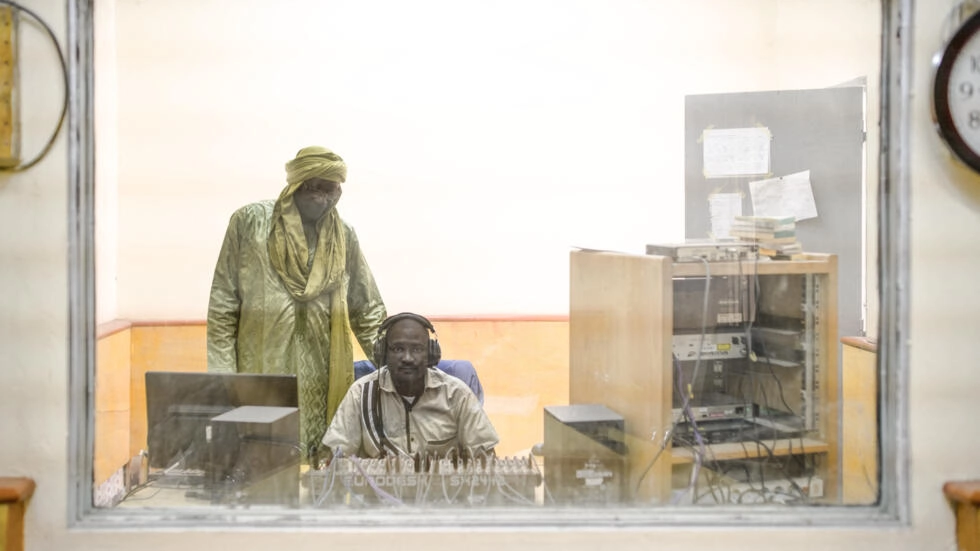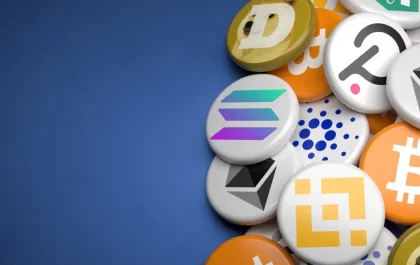Jean-Luc MOUNIER
Reporters Without Borders published on Monday an investigation into the colossal dangers journalists face while working in the Sahel, the vast, semi-arid region beset by jihadism, armed groups and instability. The NGO fears this part of West Africa is becoming a no-go area for journalists.
In its report, Reporters Without Borders (Reporters Sans Frontières or RSF) warned it is increasingly difficult for journalists to do their work freely in the Sahel. Despite the release in March of Olivier Dubois, a French journalist who worked for several news outlets, “no fewer than five journalists have been murdered and six others have gone missing” in the Sahel from 2013-2023, underlined Sadibou Marong, director of RSF’s office for sub-Saharan Africa.
Titled “What it’s like to be a journalist in the Sahel”, RSF’s report notes that the increasing frequency of terrorist attacks in the region is a crucial factor making the practice of journalism difficult there. More than 1,000 terrorist attacks took place in Mali, Niger and Burkina Faso between 2017 and 2022, according to local security watchdog Sécurité Liptako-Gourma.

Indeed, the report says swathes of Malian territory have become a no-man’s land for journalists, listing various acts of violence against journalists there over the past decade: the murder of Ghislaine Dupont and Claude Verlon from FRANCE 24’s sister service Radio France Internationale (RFI) in 2013; the kidnapping of Malian journalist Hamadoun Niabouly, who worked for radio station Dande Douentza, in 2020; the abduction of Olivier Dubois in 2021; and the abduction 10 days later of Malian journalist Moussa M’Bana Dicko, who worked for Malian radio station Dande Haire.
“Threats, the risk of kidnapping, even assassination, have become part of the daily life of journalists in the region,” the report says.
“We didn’t imagine at the time that the [murders of Dupont and Verlon] would have such an impact not only for RFI but also for the entire Malian and international press,” said Christophe Boisbouvier, RFI’s deputy director for Africa. Boisbouvier pointed out that since then there has been “virtually no on-the-ground reporting” in northern Mali where the pair were abducted and killed.
As well as Mali, other Sahel countries are also risky areas for journalists to report. In neighbouring Burkina Faso, the deteriorating security situation now forces journalists to “assess the risks before going somewhere” to report, explained Atiana Serge Oulon, publication director for local newspaper L’Événement. In Niger, meanwhile, “no journalist dares to go out into the field except for just a few rare missions, such as visits by heads of state or ministers responsible for security issues”, said a journalist speaking on condition of anonymity. To a significant extent, it is a similar situation in Chad.
Juntas’ interference
The report identifies two armed groups as responsible for the long wave of attacks that have made journalism so hard to practice in the Sahel: Wilayat al-Sahel (formerly known as Islamic State in the Greater Sahara) and the Support Group for Islam and Muslims (GSIM). The latter group – which since 2017 has brought together various jihadist groups including Ansar Dine and al Qaeda in the Islamic Maghreb (AQIM) – was behind the kidnapping of Dubois.
The groups are “present mainly in Mali, but also in Burkina Faso, Niger as well as being active in the border areas of northern Benin, Togo and Ivory Coast – and they have been waging war relentlessly since the turn of 2019 to 2020”, said FRANCE 24’s expert on jihadist movements Wassim Nasr.
As well as this security threat, “after taking power, the military juntas have not hesitated to reshape the media landscape in order to better serve their interests”, the RSF report said. “This was the case in Mali and Burkina Faso, where several French media outlets have been suspended.
“The state-owned media are particularly vulnerable when coups are being carried out because the military try to seize control of the national TV and radio stations in order to announce their takeover,” the report stated. “In Mali and Burkina Faso, the coup plotters controlled who was going in and out of the headquarters of the national TV channels – ORTM and RTB – and forced journalists to read their communiqués on the air. Some journalists were even attacked”.
The report cited the example of the Collective for the Defence of the Military, a group of soldiers seen as close to the Malian junta, accusing FRANCE 24 and RFI journalists in January 2022 of being part of a “disinformation campaign”.
Mali’s junta ordered the suspension of FRANCE 24 and RFI in March. Responding to the junta’s order, France Médias Monde, the state-owned holding company which runs the TV and radio networks, said it “deplored” the decision and “strongly protested against the unfounded accusations that seriously undermine the professionalism of its broadcasters”.
RFI, meanwhile, was suspended in Burkina Faso last December. The country’s ruling junta accused RFI of having relayed “misleading information” suggesting its leader, Captain Ibrahim Traore, had said there had been an attempted coup against him.
RFI’s management said in a statement that it “deeply deplores this decision and protests against the totally unfounded accusations calling into question the professionalism of its stations.”
FRANCE 24 was then informed on March 27, via a press release from the Burkina Faso government, of the indefinite suspension of the broadcasting of its programmes in the country. The government accused FRANCE 24 of broadcasting an “interview with the head of al Qaeda in the Islamic Maghreb (AQIM)”. However, FRANCE 24’s management pointed out that “the channel has never invited him to speak directly on its programmes, and has simply reported his words in the form of a column, ensuring the necessary distance and context” – adding that it is “outraged by the defamatory comments made by the Burkina Faso government” and that “this is an attempt to discredit a channel whose independence and ethics are not in question”.
“Burkinabé authorities should lift their France 24 broadcast ban and end further attempts to silence critical media,” said Mausi Segun, Africa director of Human Rights Watch. “The grave security situation in Burkina Faso should not be used as a pretext to curb the fundamental rights of the Burkinabé people to seek and access information through independent media outlets.”
Wagner Group sows fear
The RSF report also found that the presence of the Russian mercenary Wagner Group in the Sahel sows fear among the region’s reporters – saying that every journalist it contacted for the report said that across Mali, but especially in the north and centre, nobody in the media dares to talk about Wagner for fear of reprisals. One journalist added that since FRANCE 24 and RFI were suspended, the national media avoids the words “Russian mercenaries” and “Wagner”.
All this means that journalists working in the Sahel find it very difficult to collect and verify information. Several countries in the region have also adopted laws making it difficult for the media to report, RSF added.
So there is a real danger that the Sahel is “deprived of independent journalists and reliable information while self-censorship becomes the norm”, Marong warned.
“The report is appealing to the region’s governments,” he concluded. “They need to wake up, so that the 110 million people living in the Sahel are not deprived of their basic right to be informed.”
Related posts
Brit Awards | Asake, Burna Boy And Other ‘New Cats’ Get Nominations
Nigerian singers Burna Boy, Asake, and Rema have been nominated for the 2024 Brit Awards. The nomination list for the annual music awards show was released on Wednesday 25, January 2024. Burna Boy and Asake made the ‘Best International Artiste’ category, while ‘Calm…
Brit Awards 2024 | The Full List Of Artist(e)s
This year’s Brits nominees have been revealed ahead of the ceremony in London in March. Dua Lipa is the first star confirmed to perform at the event – but how many awards is she up for? Musicians including Raye, Central Cee, J Hus and Blur are also…
The Miss Universe-Greatest Celebration of Women
-SOFIE ZERUTO The Miss Universe Organization is a global, inclusive of organizations that celebrates all cultures, backgrounds and religions. It creates and provide a safe space for women to share their stories and drive impact personally, professionally, and philanthropically. The women who participate in this…
All Africa Music Awards; Categories and Regions
-MUSIC IN AFRICA All Africa Music Awards (also referred to as AFRIMA) is an annual awards event. The awards event was established by the International Committee AFRIMA, in collaboration with the African Union (AU) to reward and celebrate musical works, talents and creativity around the African continent while promoting…
Top 10 Cryptocurrencies To Invest in January 2024
-Michael Adams From Bitcoin and Ethereum to Dogecoin and Tether, there are thousands of different cryptocurrencies, making it overwhelming when you’re first getting started in the world of crypto. To help you get your bearings, these are the top 10 cryptocurrencies based on their market…
The Risk And Reward Of ChatGPT In Cybersecurity
Juan is an experienced CTO with a demonstrated history of working in the computer and network security industry. He is an information technology professional skilled in SAP and Oracle applications, computer forensics, vulnerabilities research, IPS/IDS and information security. Unless you’ve been on a retreat in…
Explained – History Of Money From Fiat To Crypto
What is money? Money as a concept has been a cornerstone of human civilization and economic development. To start with the latter, money is a method of storing value and worth, and it also functions as a medium of exchange that allows individuals to exchange…
Studies Show That Nigerian Crypto Foreign Investment Is At A Record Low
Foreign direct investment in Nigeria fell by 33% last year due to a severe shortage of dollars, which discouraged crypto companies from expanding into the country. The largest economy in Africa has a foreign investment problem despite exponential growth in crypto adoption. The National Bureau…











